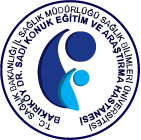ABSTRACT
Lung cancer is a heterogeneous and complex disease. Oncogenic driver mutations are critical for lung cancer development and serve as therapeutic targets. Oncogenic driver mutations are well defined in epidermal growth factor receptor (EGFR), anaplastic lymphoma kinase (ALK) and reactive oxygen species-1 (ROS-1) mutations. Human epidermal growth factor receptor-2 (HER-2) positivity and anti-HER-2 treatments are well studied in breast cancer. In non-small cell lung cancer (NSCLC), these treatment approaches are under investigation. In NSCLC, mutations of HER-2 are found in 2%–4% of cases. The most commonly encountered mutations are frame insertions in exon 20. There is no evident association between HER-2 amplification and HER-2 mutations. HER-2-targeted therapy needs further clinical investigations in NSCLC.



